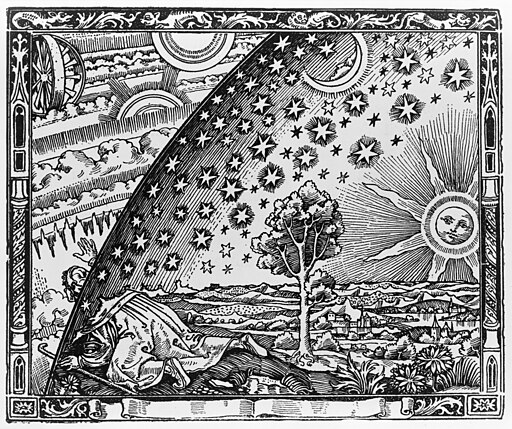Day 1 (Thu 25.09.2025)
D0002+D0003
D1004
D1005
Chair: Ursula Renz
Chair: Sorana Corneanu
Chair: Jonas Franzen
09:00–09:45
Philosophical Chimeras of the History of Philosophy: the Case of Descartes’ Dualism
—
Does Philosophy of Mind have a History?
09:55–10:40
Spinoza on Active Love
A micrological reading of the Later Cusanus
Self-Cognition. Ideas all the way Down?
10:50–11:35
A proper concept? — Revisiting Spinoza’s usage of ‘propria’
Towards a poietic approach to the history of 17th century philosophy
The metaphorical mind. Abstraction as a cognitive-semantic and metaphorical process in the British Debate of the 18th Century.
11:45–12:30
—
Learning to Live Inside the Problem — Towards A History of Philosophical Troublemaking with Montaigne and Cavendish
Is Method a ‘Myth’? Revisiting A Controversial Category of Early Modern Epistemology Through Pascal’s Case
12:30–13:30
Lunch Break
Chair: Hein van den Berg
Chair: Hugo Hogenbirk
Chair: Luce deLire
13:30–14:15
Modality of Thought in Spinoza (and Lewis) – a Sketch
Is Anne Conway a Monist?
Historical Understanding and the Author’s Intention
14:25–15:10
Towards a Hermeneutics of Conatus. Methodological Reflections on Reading Spinoza as an Ethical Egoist
Fundamentallity, Simplicity and Mass-Energy: Du Châtelet’s Theoretical Philosophy as a Reflection on Contemporary Physics
The Millennium Gap Theory and the Historiography of Early Modern Philosophy
15:20–16:05
Early modern feminism within early modern political philosophy: Poulain de la Barre’s subversion of Hobbes
The Method of Analogy as Hermeneutic Tool: How to overcome Biases in the Interpretation of Newton’s Experimental Philosophy
The Reason Why Canon Expansion is Crucial for Studying Early Modern Philosophy
16:15–17:00
The Metaphysical Significance of Early Modern Philosophy: The Case of Spinoza
Jan Sniadecki’s anti-Kantian sarcasm between the macrohistory of empiricism and the microhistory of experimental philosophy
Is Kant‘s universalist foundation of science colonialist -and (therefore) untrue?
17:30–19:00
Day 2 (Fri 26.09.2025)
D0002+D0003
D1004
D1005
Chair:
Paola Rumore
Charles Wolfe
Christian Henkel
09:00–09:45
Bradley’s Challenge and a Metaphysics of Grounding for Spinoza
What’s wrong with getting things right
Material Objects and Properties in Margaret Cavendish’s Ontology: Individuation and Mereology
09:55–10:40
Spinoza’s thorough aspectualism
Early Modern Women Philosophers and the Canon: Back to the Drawing Board?
The Literary is Philosophical: Mary Cavendish’s Poems on Natural Philosophy
10:50–11:35
Emergence of Sensible Intuition in pre-Kantian German Philosophy
Digital Begriffsgeschichte for early modern history of philosophy?
Gauging feminism in the Nordic gynaeceum: Casting Otto Sperling the Younger in three roles
11:45–12:30
Other Individuals: A Spinozist Account of the Right of Ecosystems
Counting the Bees: A Data-Driven Investigation Into Early Modern British Thought (1605–1776)
Margaret Cavendish on Perception and Causation
12:30–13:30
Lunch Break
Chair:
D0002+D0003
D1004
D1005
Vili Lähteenmäki
Sabrina Ebbesmeyer
13:30–14:15
—
Simon Foucher – looking for a „criterium general“
Contextualism and Anachronism in Early Modern Philosophy: The Two Contexts View
14:25–15:40
Session on early career issues
16:00–18:00
Round Table
19:00
Conference Dinner
Day 3 (Sat 27.09.2025)
D0002+D0003
D1004
D1005
Chair:
Oliver Toth
Charlotte Baumann
Timm Lampert
09:00–09:45
Expressing Historically Well-Informed Ideas for a Contemporary Audience: Is Historically Well-Informed Fictionalism a Viable Alternative?
Leibniz, characteristica universalis, knowledge representation and reasoning
—
09:55–10:40
Why it is important that people like me read people like them and talk about it with people like you.
Completing Leibniz’s phenomenology of reflexivity
Rhyming Poetic Truths: Giambattista Vico’s Philosophy as a Model of Intersubjectivity
10:50–11:35
Philosophising with and against systems
The Spread of Wolff’s Mathematical Method in 18th-Century Germany: A Data-Driven Investigation
Materialism and Heteronormativity
11:45–12:30
Rethinking the history of early modern philosophy from Latin American colonial philosophy
The Dawn of History?
Leibnizian Aesthetics
12:30–14:30
General Meeting & Lunch Break
14:30–16:00
Anik Waldow
16:00
Farewell conversations
